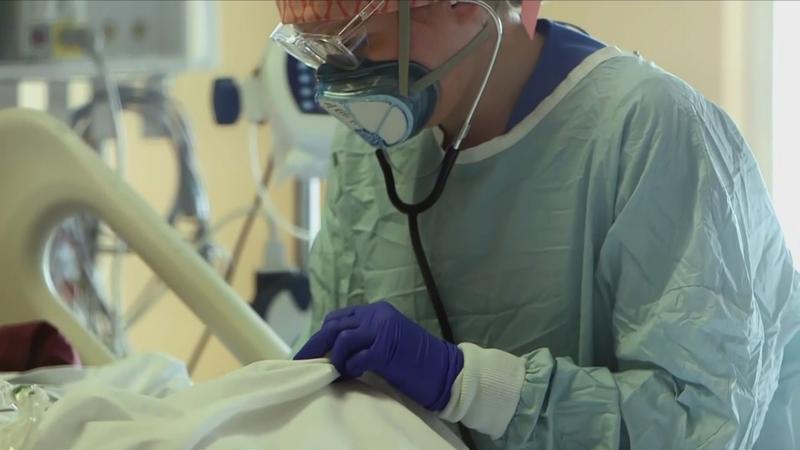Demand for monoclonal antibody treatment up in Rochester area
[anvplayer video=”5075312″ station=”998131″]
ROCHESTER, N.Y. (WHEC) — Local hospitals are short-staffed and filled to capacity. That’s why doctors think it’s important to try and treat as many patients with confirmed cases of COVID-19 before they get sick enough to be hospitalized. The use of monoclonal antibody treatment is expanding in the Finger Lakes region.
Here’s the brutal truth according to Dr. Shahzad Mustafa, the lead physician for Allergy, Immunology, & Rheumatology at RRH, "our hospital systems in the Finger Lakes region are kind of coming apart at the seams. If we can prevent people from getting sick and from getting hospitalized with COVID which tends to be a pretty lengthy hospitalization even on the best of outcomes that’s a huge win."
Monoclonal antibody treatment is primarily available to both unvaccinated and vaccinated people who have tested positive, through a PCR test, for COVID and who have had symptoms for less than 10 days.
At this point, the treatment is mostly reserved for those who are at higher risk of developing more serious symptoms, meaning those with pre-existing medical conditions or the eldery.
In most situations, the treatment is given intravenously.

[News10NBC]
"We have been offering this therapy for the greater part of the last year," said Dr. Mustafa, "and we do believe that for individuals who are high-risk for progressing to severe COVID these therapies, they decrease your viral load faster, they shorten the duration of your illness, but importantly they decrease your likelihood of hospitalization and also, very importantly, they are safe and well-tolerated."
Both Rochester Regional Health and UR Medicine currently offer the treatment but patients need to be referred by a doctor. With COVID cases on the rise, there’s been a lot more interest in monoclonal antibody treatments as of late, and for now the health systems still have to request the antibodies from the state.
"Each week, we show our utilization and ask for the next supply and to be honest to date we’ve pretty much gotten what we’ve asked for, until recently where we’ve had less allocation than requested," explained Dr. Mustafa.
That’s why he says, it’s still crucial to take steps to protect yourself from even getting COVID-19 in the first place, or getting it again.
"Natural infection needs to be acknowledged, I think sometimes we don’t do a great job saying that it is providing immunity, that needs to be acknowledged and that’s real and that’s science," says Dr. Mustafa, "is it as good as immunity against three doses of an mRNA vaccine? Probably not, we don’t believe that based on the levels of antibodies duration and diversity."